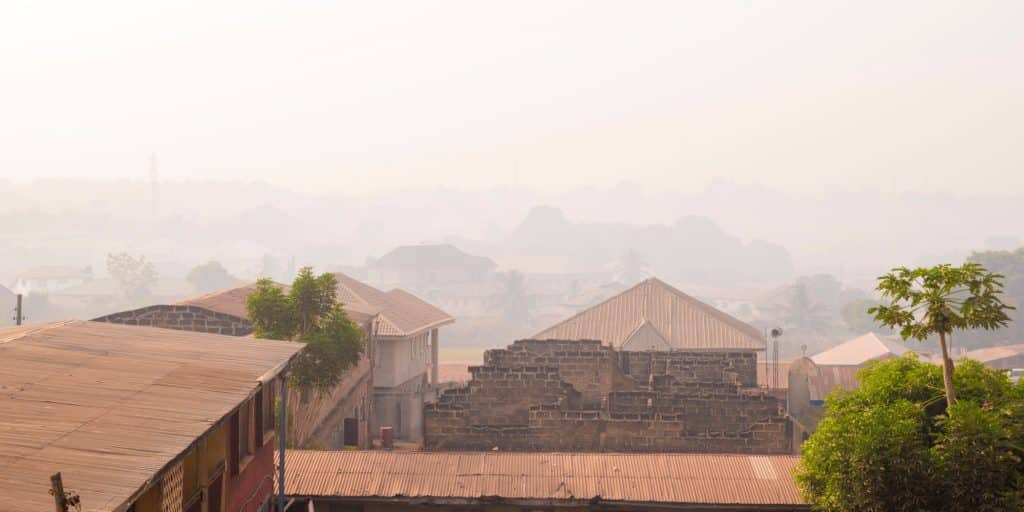Accra, the capital of Ghana, now ranks alongside New Delhi in India as one of the world’s most polluted cities. The African city of 4 million inhabitants, marked by rapid urbanization and industrialization, is currently experiencing air pollution due to the harmattan season.
Monitoring results published on February 6, 2024 by Ghana’s Environmental Protection Agency (EPA), indicate an air quality index (AQI) between unhealthy (red) and very unhealthy (purple). Harmattan is at the root of this pollution. The hot, dry north-easterly wind has intensified this year, compared with previous years.
“From our monitoring points along the route, we’ve realized that pollution levels are high – and this is largely due to climate change. Rising temperatures, changing wind patterns and increased desertification have all contributed to the severity of the weather,” explains Selina Amoah, Environmental Quality Officer at the EPA. She also points out that climate change can influence the intensity and duration of the harmattan season, potentially leading to more severe dust storms or altered dust transport patterns. This can also have a negative impact on air quality.
Limiting outdoor activities
To reduce the harmattan season’s impact on people’s health, the EPA has urged vulnerable groups – particularly the elderly, children, pregnant women, people with asthma and associated allergies, and anyone else with underlying health problems – to reduce outdoor activities as much as possible. The agency also urges all vehicle users to reduce their speed on unpaved roads to reduce dust emissions.
Read also-AFRICA: Air pollution is the second highest risk factor for death
According to the World Health Organization (WHO), air pollution is responsible for 4 million deaths worldwide every year. In Ghana, this translates into at least 28,000 premature deaths every year. These figures are all the more shocking given that only 1% of global development aid is devoted to combating air pollution.
Boris Ngounou
